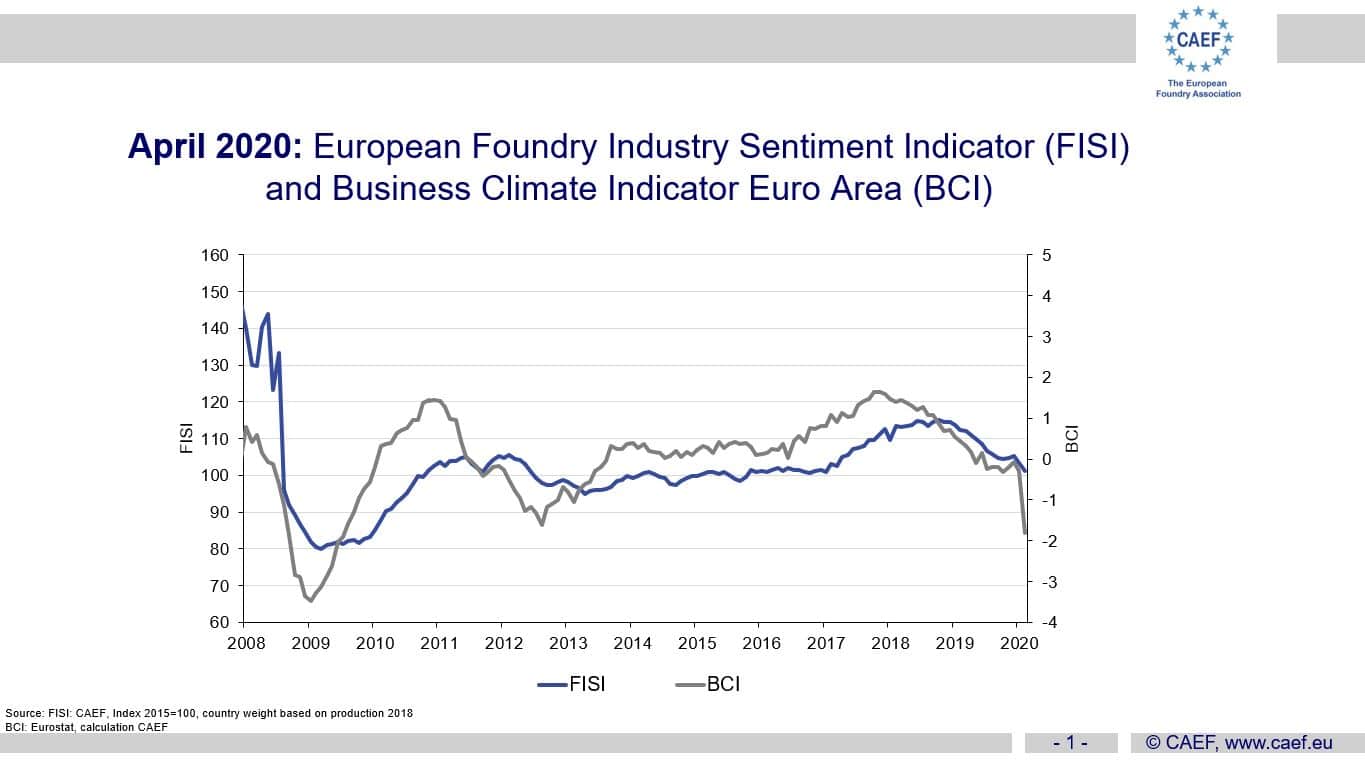April 2020: The coronavirus crisis affects the European foundries more negatively than the mood may indicate
While the coronavirus spread around Europe, the COVID-19 pandemic affected the health care and the socio-economic systems of the European countries to varying negative extents. Accordingly, the European Foundry Industry Sentiment continued to decline in April, after the mood already worsened in March. This was primarily due to the deterioration in expectations for the coming six months. Because COVID-19 has a strong impact on the automotive industry and machine manufacturers, European foundries are facing a sharp drop in incoming orders and consequently lower production. But the sentiment does not show the full scope of the challenging impacts, because the response rate this month was lower than usual. However, the Business Climate Indicator visualises the negative mood of industrial companies in the Euro Area: The BCI decreased dramatically to ‑1,81 points. But it remained above the record low of April 2009 during the financial crisis.
The FISI – European Foundry Industry Sentiment Indicator – is the earliest available composite indicator providing information on the European foundry industry performance. It is published by the European Foundry Association (EFF) every month and is based on survey responses of the European foundry industry. The EFF members are asked to give their assessment of the current business situation in the foundry sector and their expectations for the next six months.
The BCI – Business Climate Indicator – is an indicator published by the European Commission. The BCI evaluates development conditions of the manufacturing sector in the euro area every month and uses five balances of opinion from industry survey: production trends, order books, export order books, stocks and production expectations.
EFF Contact:
Sophie Steffen
Secretary Commission for Economics & Statistics
phone: +49 211 68 71 — 301
sophie.steffen@EFF.eu
